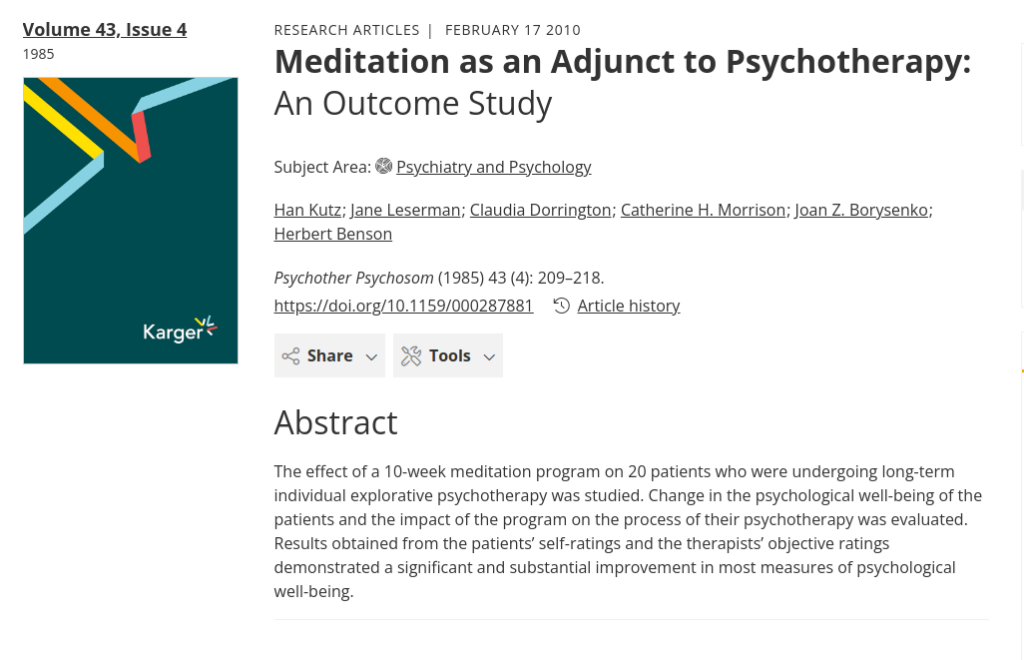Publication
Psychotherapy and Psychosomatics
43 (4): 209-218
Abstract
The effect of a 10-week meditation program on 20 patients who were undergoing long-term individual explorative psychotherapy was studied. Change in the psychological well-being of the patients and the impact of the program on the process of their psychotherapy was evaluated. Results obtained from the patients’ self-ratings and the therapists’ objective ratings demonstrated a significant and substantial improvement in most measures of psychological well-being.
Web and Email Links
Related Listings
Journal
Journal of Chronic Diseases
A prospective investigation was designed to test whether the altered behavior of the regular practice of a relaxation, meditational technique might lower blood pressure in 22 borderline hypertensive subjects. The investigation was unbiased with regard to the presence of antihypertensive agents; subject familiarity with blood pressure measurement or with the observer; observer error; and the effects of blood pressure variability. During the control period, blood pressures averaged 146. […]
Journal
Journal of Clinical Medicine
Stress is a term used to define the body’s physiological and psychological reactions to circumstances that require behavioral adjustment [1,2,3], and the relaxation response is a psychophysiological state that is opposite to that of the stress or fight–flight response [4]. A variety of mind/body techniques can be used to elicit a relaxation response and achieve the therapeutic effects associated with reduced blood pressure. For example, researchers at the Cochrane Review [5] investiga […]
Journal
Journal Alternative and Complementary Medicine
Objective: Mind–body practices that elicit the relaxation response (RR) have been demonstrated to reduce blood pressure (BP) in essential hypertension (HTN) and may be an adjunct to antihypertensive drug therapy. However, the molecular mechanisms by which the RR reduces BP remain undefined. Design: Genomic determinants associated with responsiveness to an 8-week RR-based mind–body intervention for lowering HTN in 13 stage 1 hypertensive patients classified as BP responders and 11 as n […]

